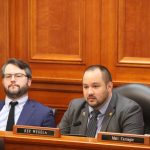The Presidential Fiscal Policy and Tax Reforms Committee has released detailed clarifications addressing concerns by Nigerians in the diaspora about the new tax reforms taking effect in 2026.
This was disclosed in a material obtained by PUNCH Online on Thursday from the Chairman of the Presidential Fiscal Policy and Tax Reforms Committee, Taiwo Oyedele.
According to the document, “genuine personal transfers such as family remittances, gifts, refunds (e.g., flight tickets), or community savings contributions are not treated as taxable income.”
It explained that “only income earned or deemed to be income (e.g., wages, business profits, investment returns) is subject to tax,” adding that “every individual is required to self-report their income and pay tax where applicable.”
On double taxation, the committee clarified that “income earned abroad and brought into Nigeria by a non-resident individual is now specifically exempted from tax in Nigeria regardless of whether tax was paid abroad or not.”
It added that “Nigeria has Double Taxation Agreements (DTAs) with several countries, and the new tax laws provide for a unilateral relief where a DTA does not exist to ensure that the same income is not taxed twice.”
Explaining how residency is determined, the statement said, “Residency is based on the 183-day rule (cumulative days of physical presence in Nigeria within a 12-month period). Non-residents are taxed only on income derived from Nigeria (e.g., rental income, dividends, business profits).”
The committee clarified that “diaspora Nigerians living abroad who are not tax resident in Nigeria are not taxed on their foreign employment or business income,” and that “dual citizenship has no impact on the tax status of an individual whether resident or non-resident in Nigeria.”
On investments, it noted that “income from investments in Nigeria are either exempt, subject to capital gains tax (CGT) or withholding tax as a final tax,” adding that “government bonds, including Sukuk are tax exempt.”
It further stated, “CGT applies to the sale of real estate other than sale of owner-occupied buildings. Shares are exempt up to proceeds not exceeding ₦150 million and ₦10 million gains in a year.
“Dividends, non-government bond interest and rental income are subject to withholding tax at 10% as final tax which may be reduced to 7.5% for recipients in certain countries such as the UK, South Africa and China.”
Addressing questions on pensions and remote work, the material noted that “only income that arises in Nigeria is taxable for non-residents. Pensions and stipends from abroad are not taxed in Nigeria unless received for work done in Nigeria.”
It added, “Remote workers are taxed based on the rules in the country where they are resident or earn such income, not merely where payment is made.”
On tax identification requirements, the committee explained that “a TIN is not required and there is no requirement to file tax returns unless you earn employment or business income from Nigeria.”
It continued, “Non-residents without Nigerian-source income are not obliged to file annual returns. Those with taxable employment or business income in Nigeria are required to file returns. Simplified channels (e.g., TaxProMax, online TIN applications) are available to ease compliance.”
“For individuals, a TIN can be obtained from the Joint Tax Board via https://tin.jtb.gov.ng. For companies, TIN is now automatically assigned at the point of registration with the Corporate Affairs Commission,” the committee said.
Regarding NGOs and diaspora-owned businesses, it stated that “NGOs are tax-exempt if they are registered and operate strictly for charitable purposes, and comply with reporting and filing requirements.”
“Diaspora-owned SMEs in Nigeria are treated like local businesses, taxed on profits but eligible for incentives and reliefs available to small enterprises,” the material added.
The document also noted that the reforms mandate transparency measures, including public reporting, governance structure and independent oversight for tax revenues.
“Other fiscal measures are being strengthened to link tax revenues to visible infrastructure and service delivery with safeguards against corruption and framework to prevent and punish misuse of taxpayer data,” it said.
On incentives, the committee explained that “incentives under the new laws apply generally to certain investments including diaspora-led investments in key sectors (e.g., priority sector incentives in agriculture, creative sector, manufacturing, etc.), SME corporate tax exemption threshold, exemption of VAT on real estate, etc.”
According to the Presidential Fiscal Policy and Tax Reforms Committee, reforms make the tax system in Nigeria fairer and more friendly to Nigerians in the diaspora, address incidence of double taxation, align Nigeria with global best practice, simplify and provide clarity where tax is payable or filing obligation is applicable.









